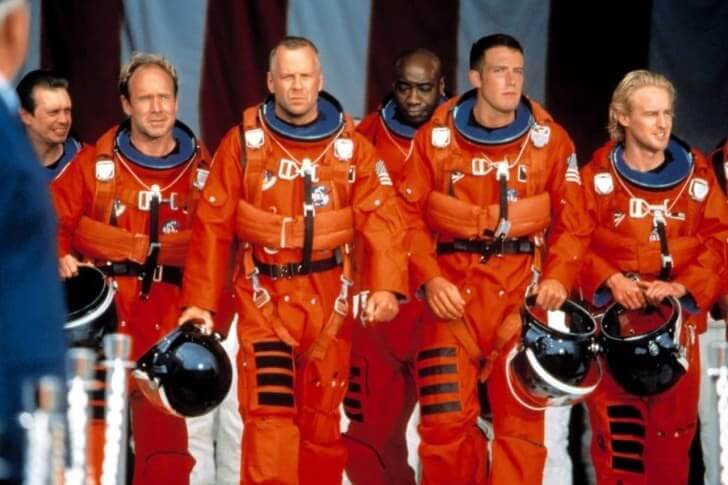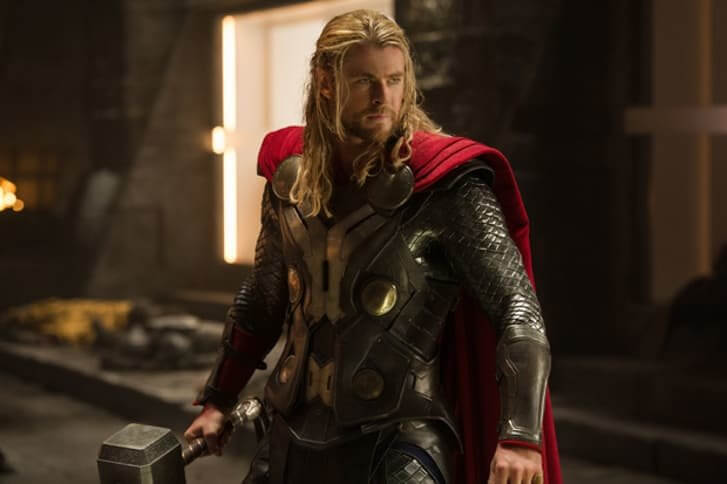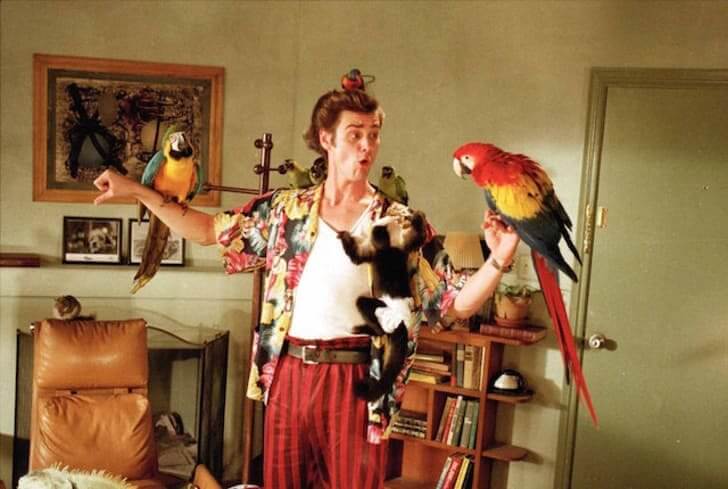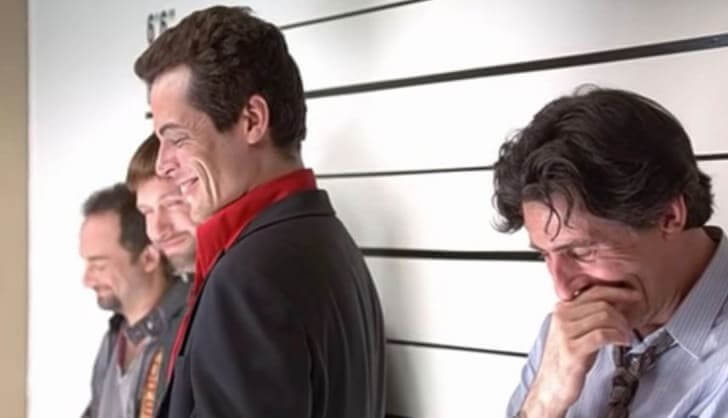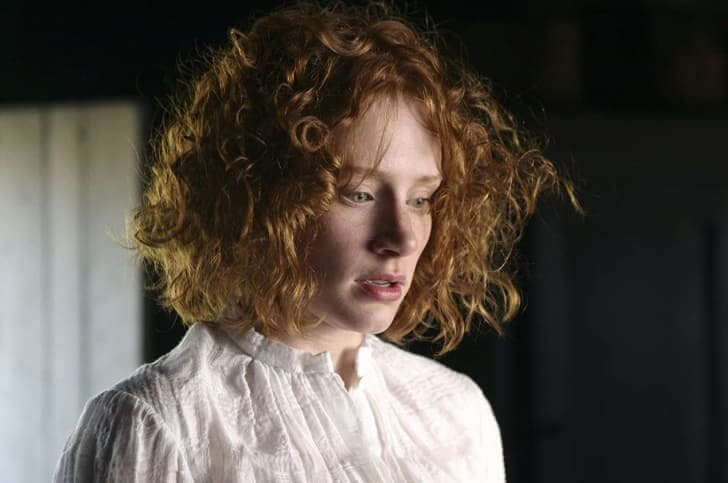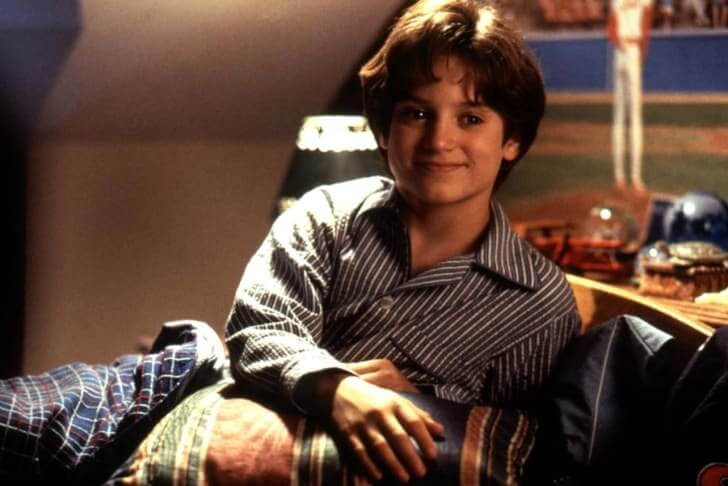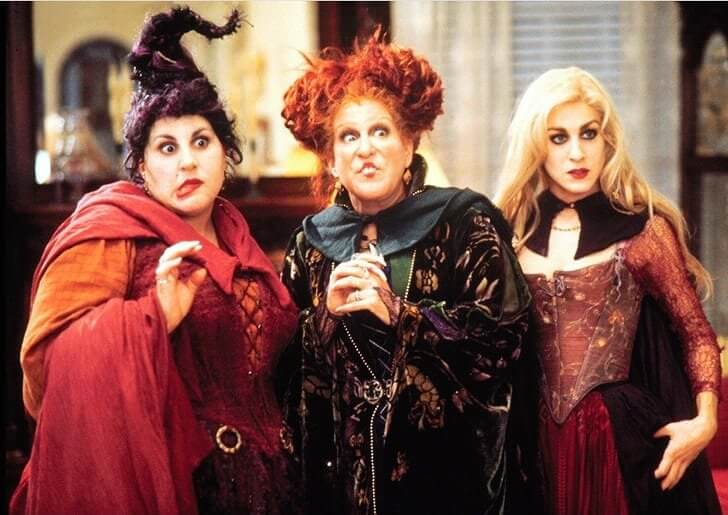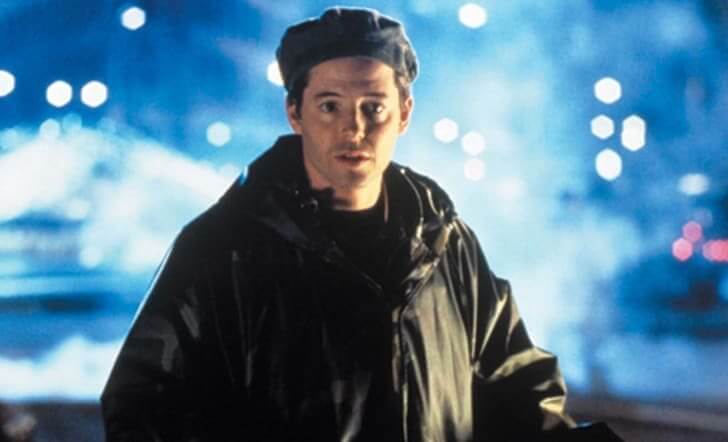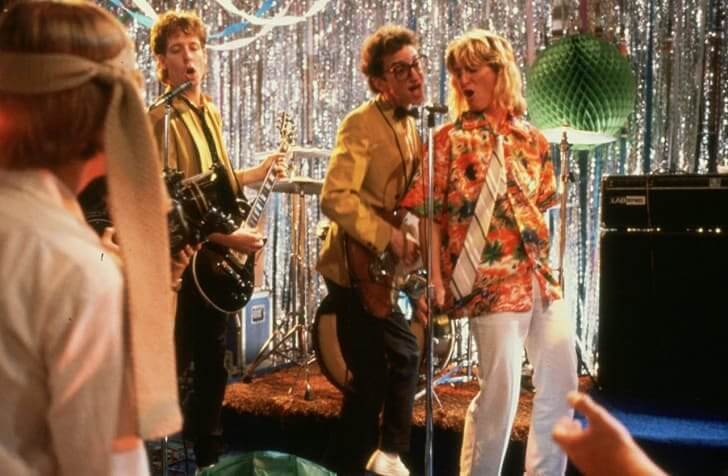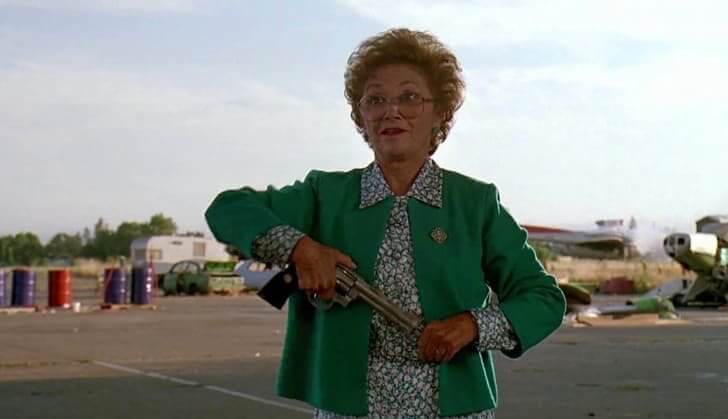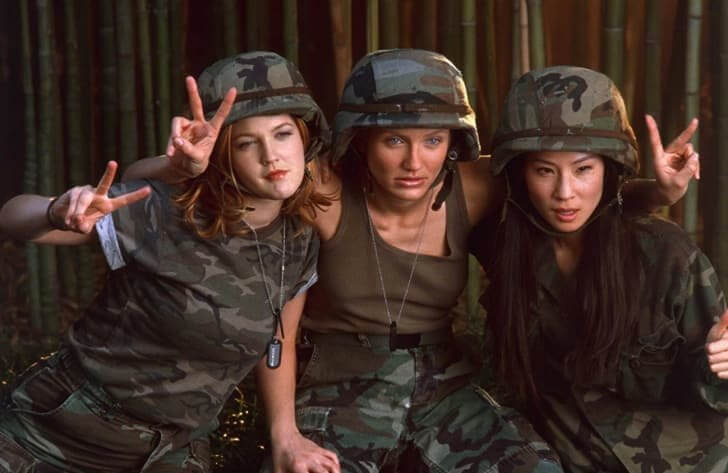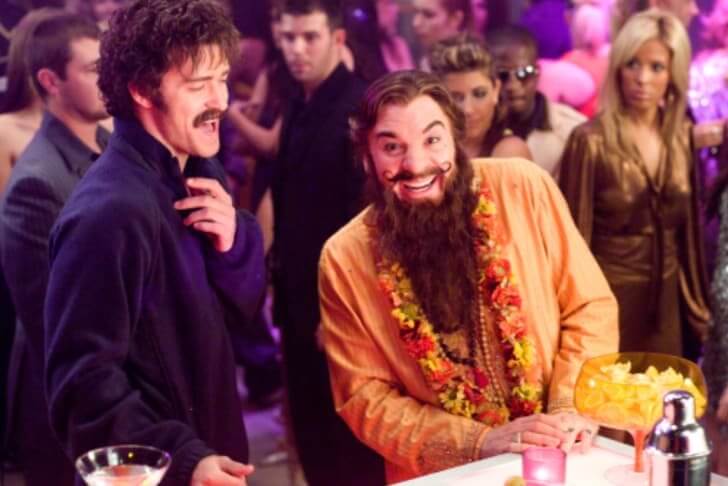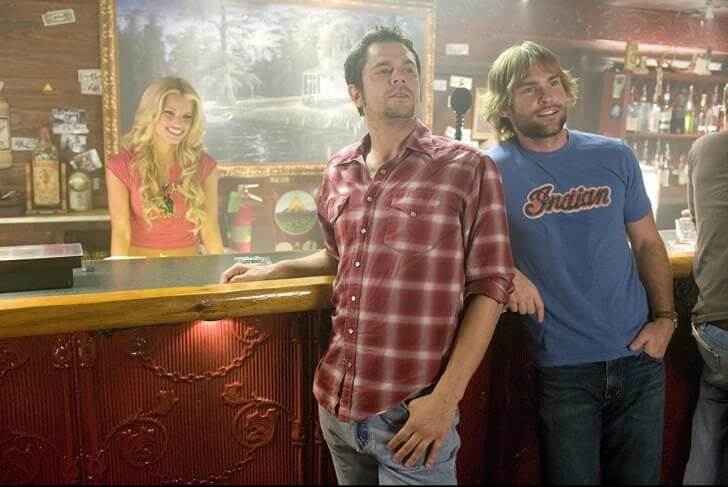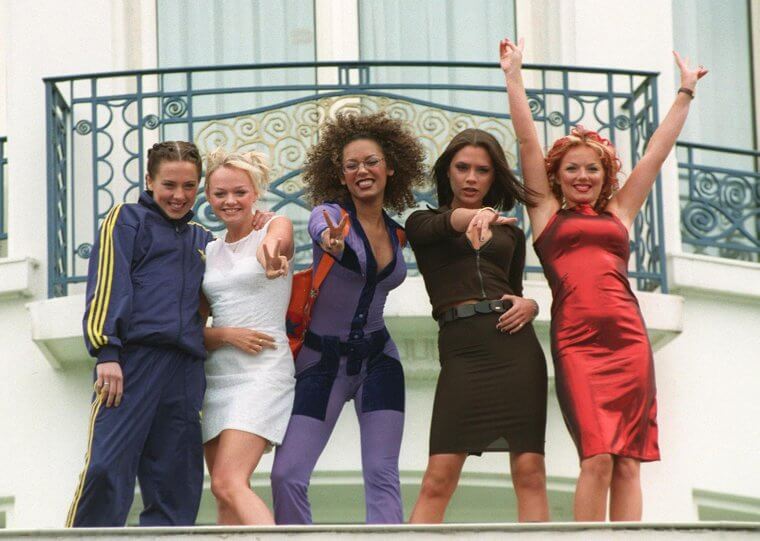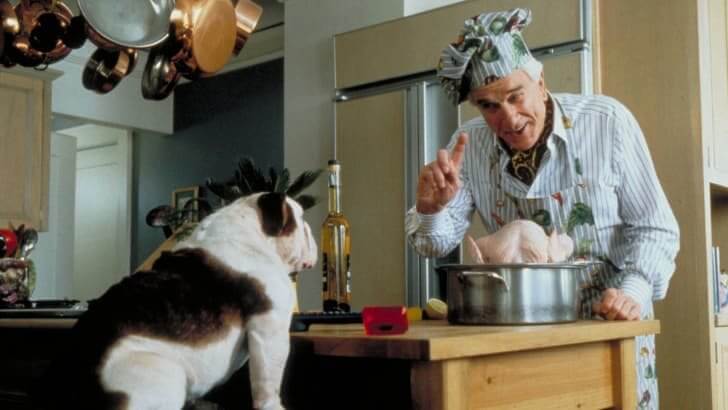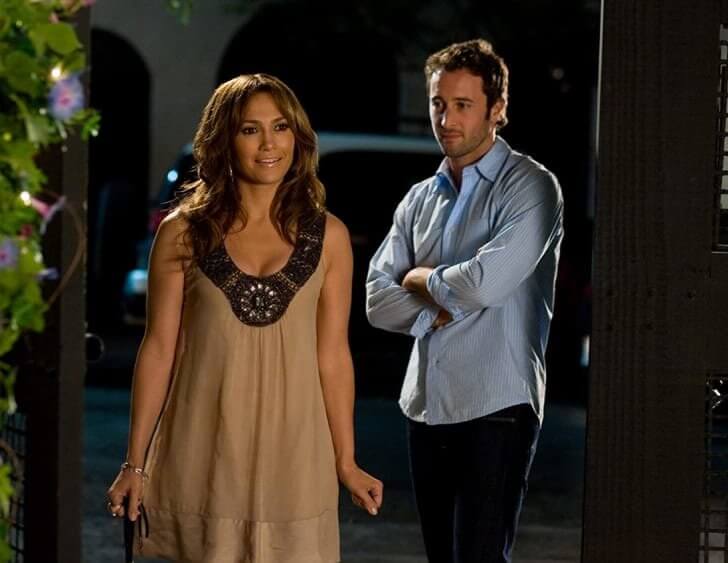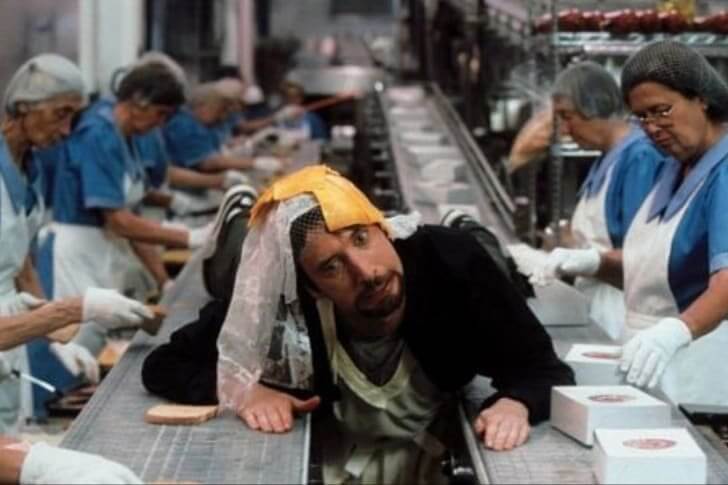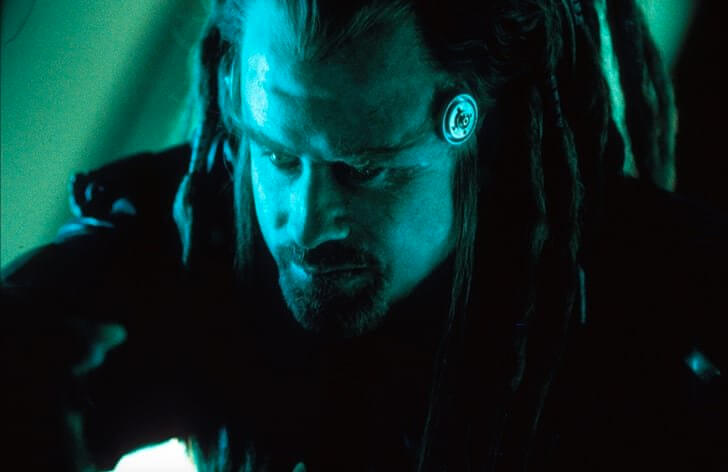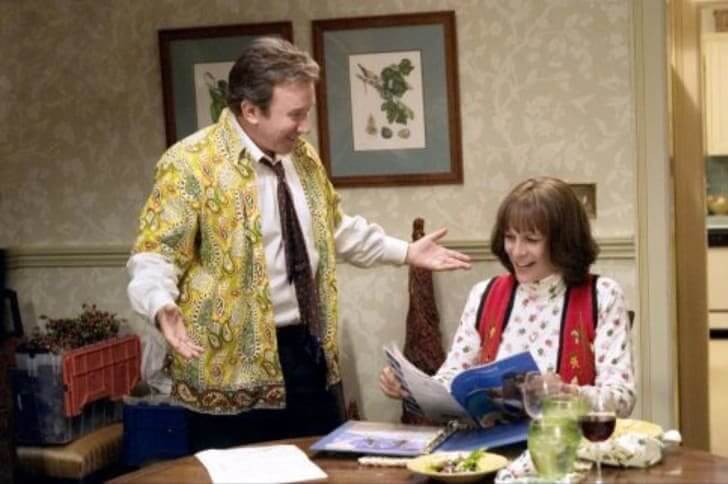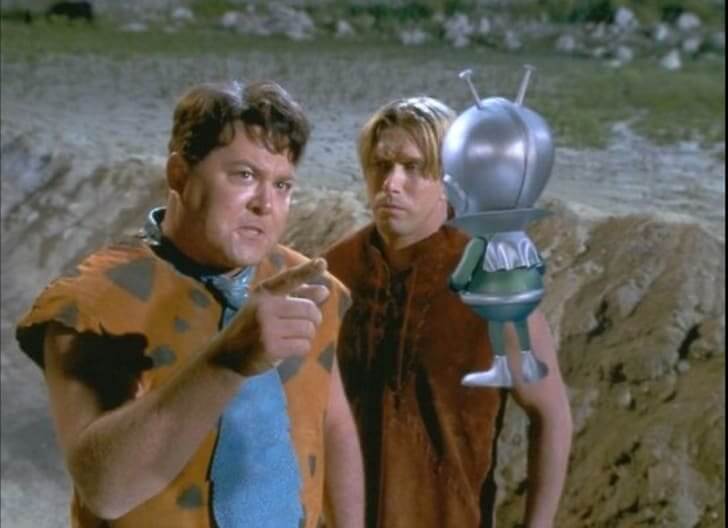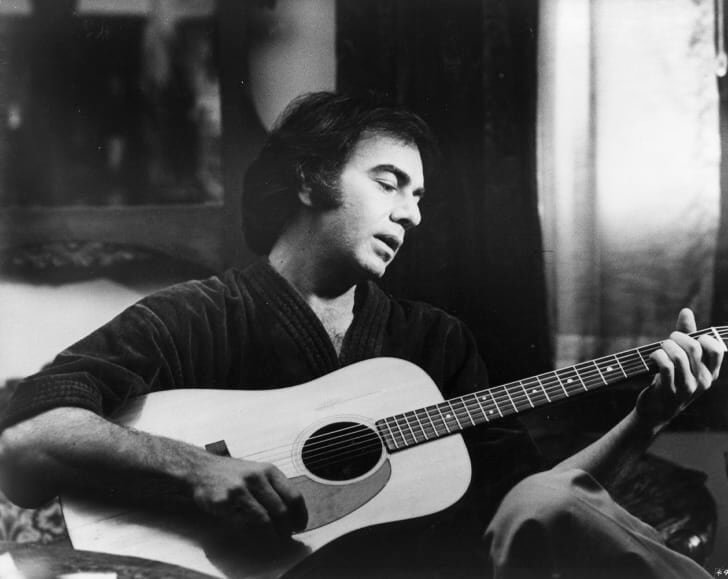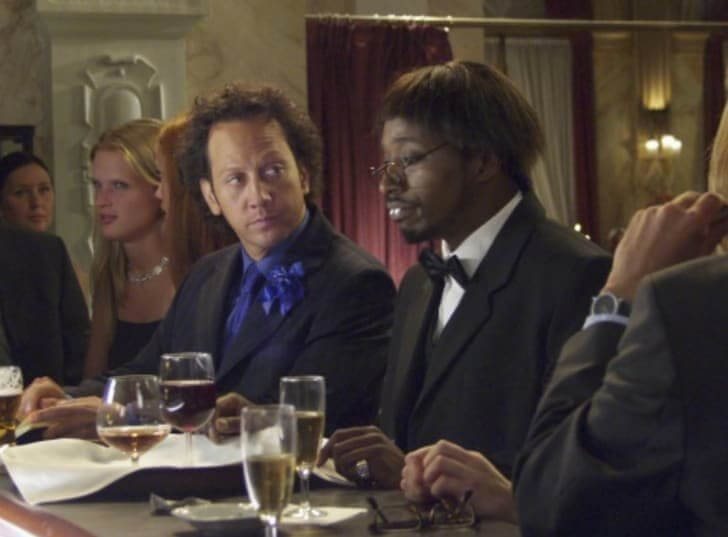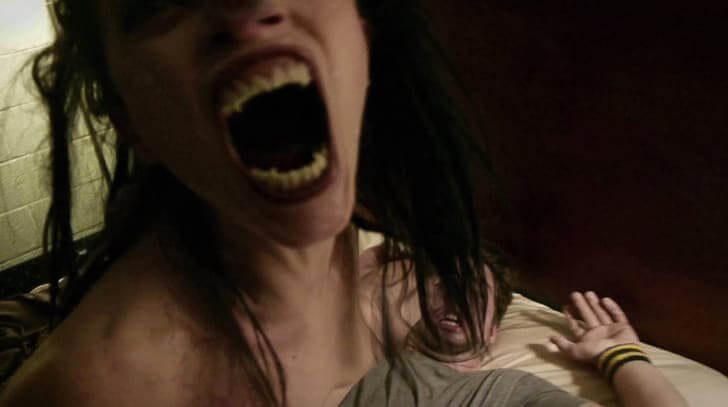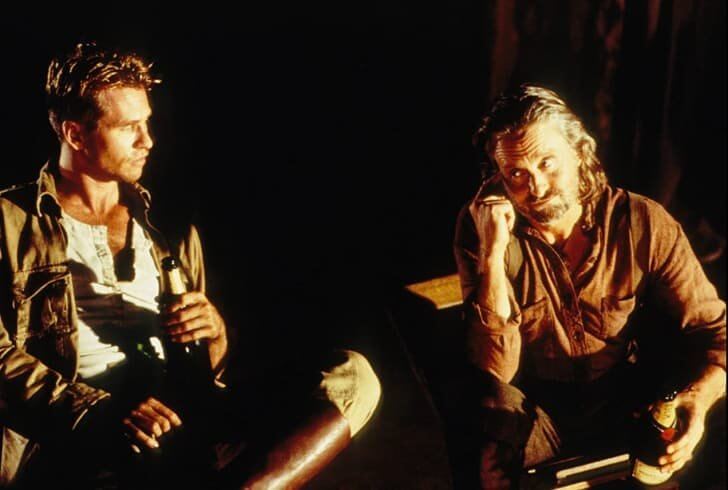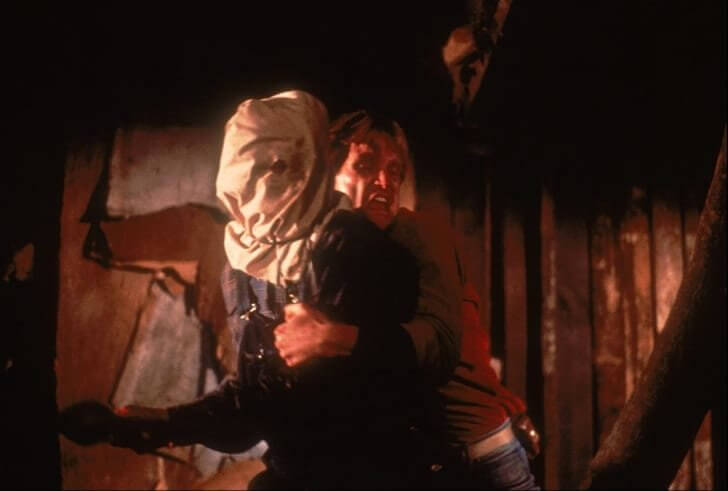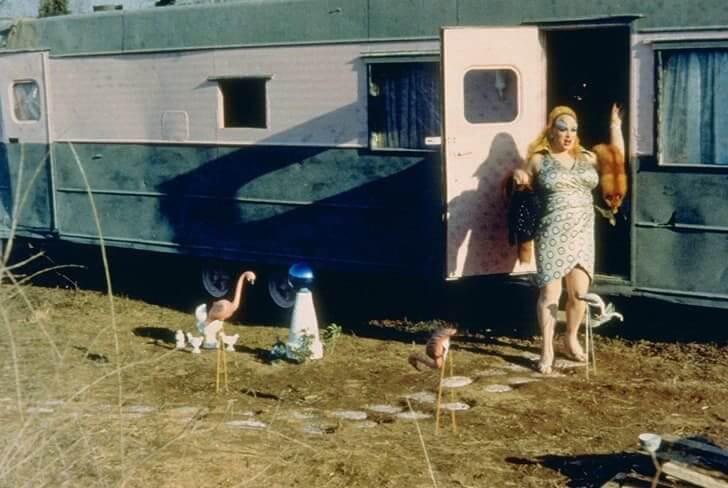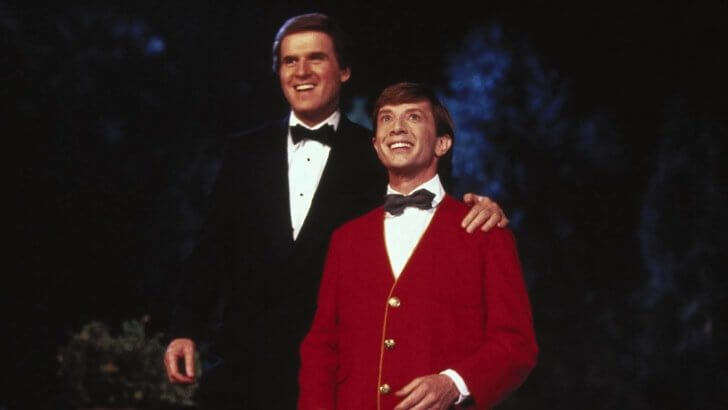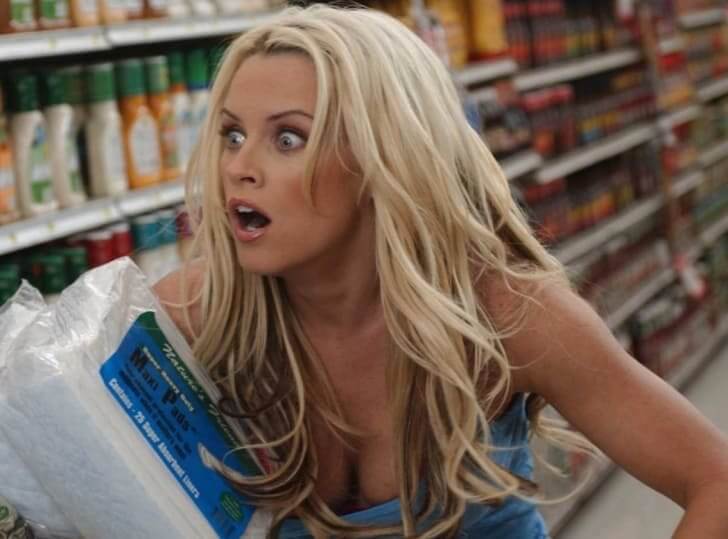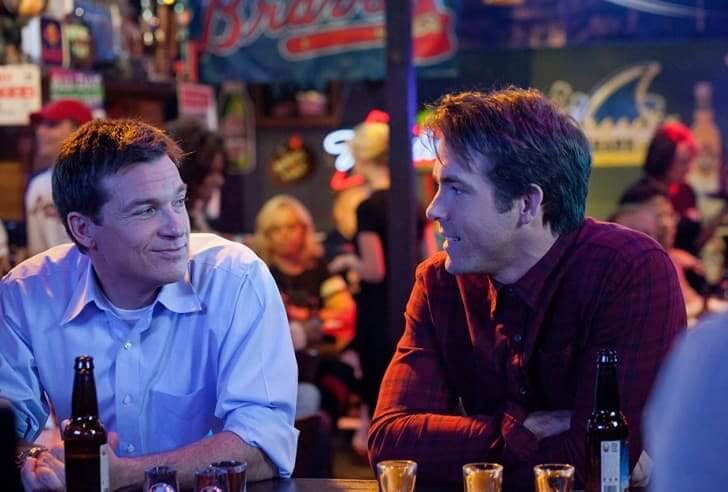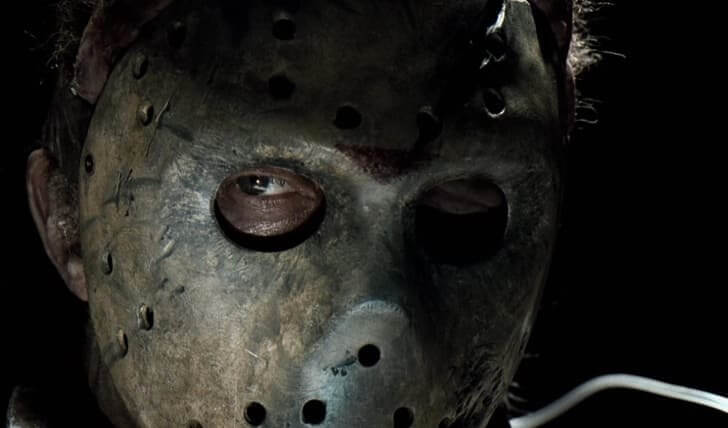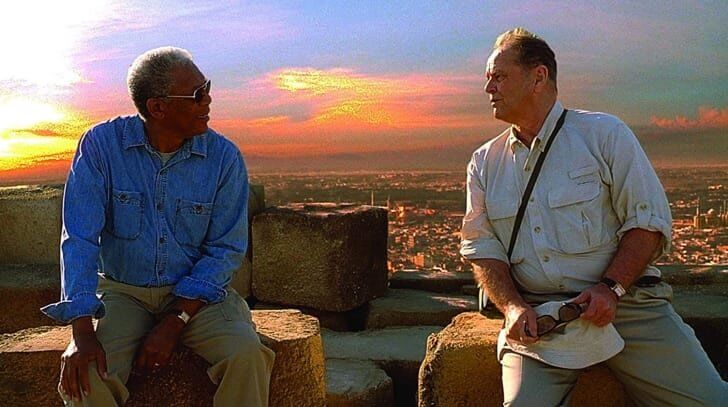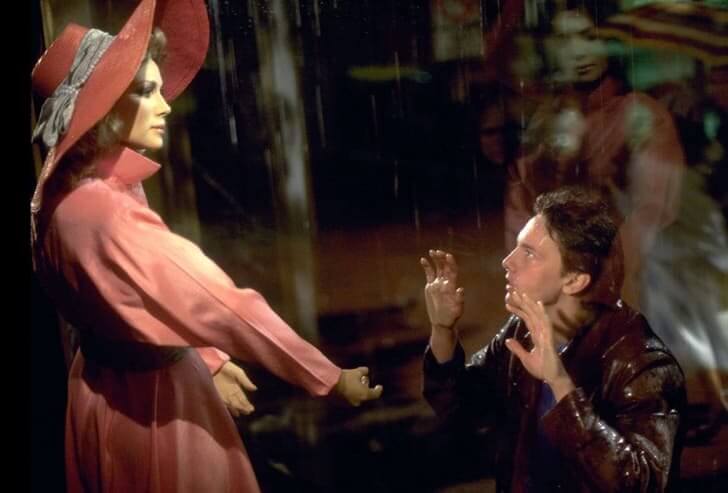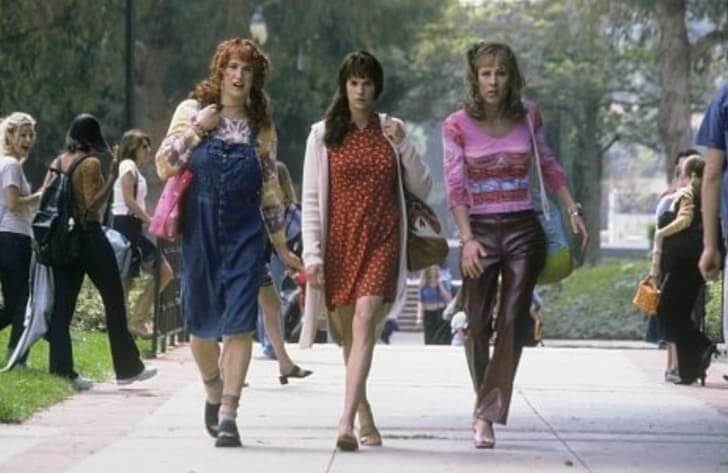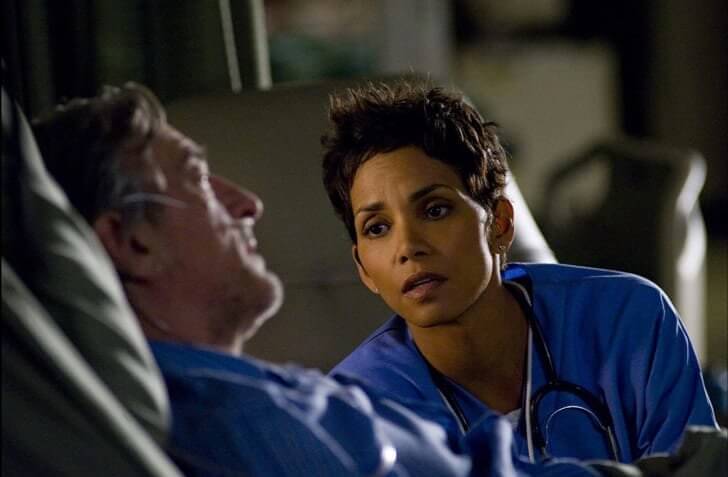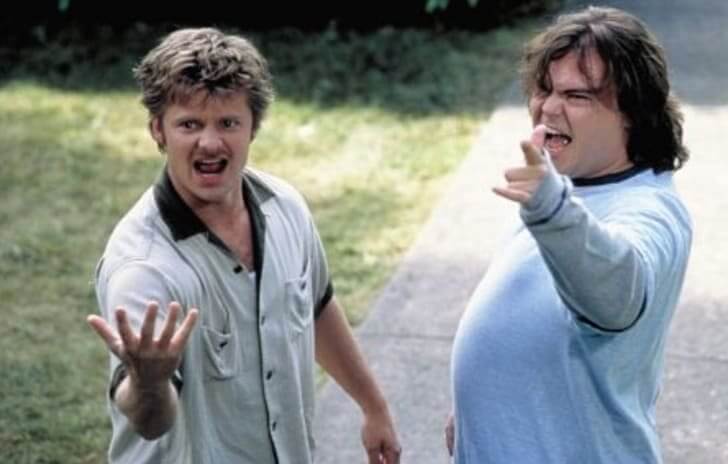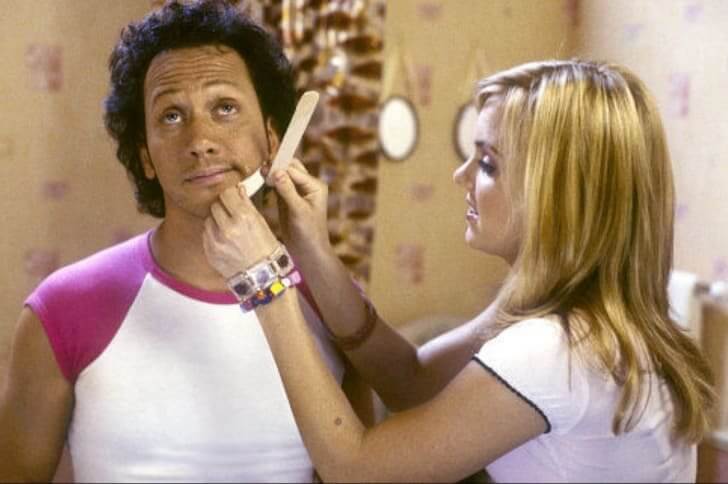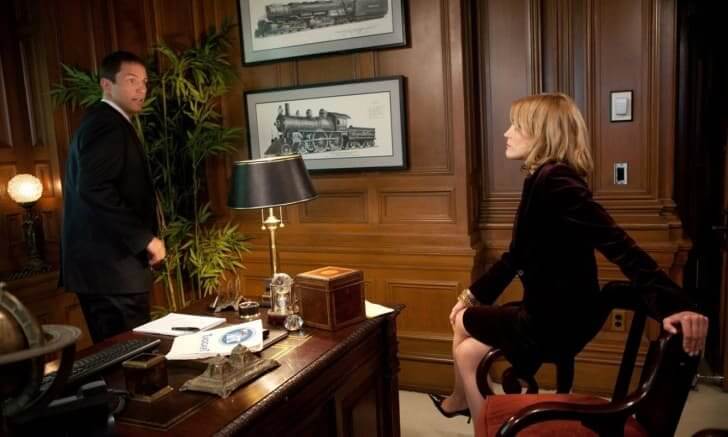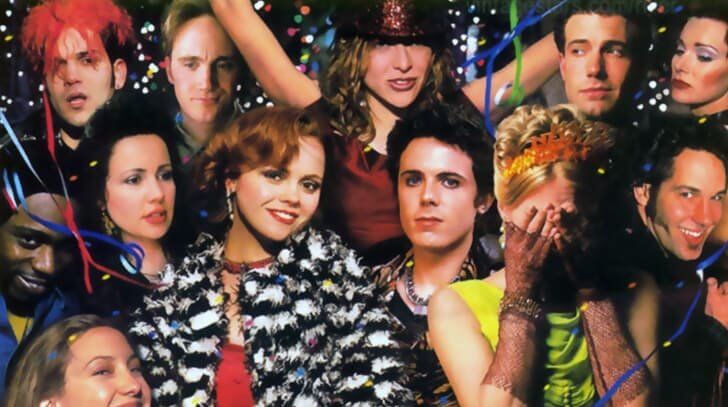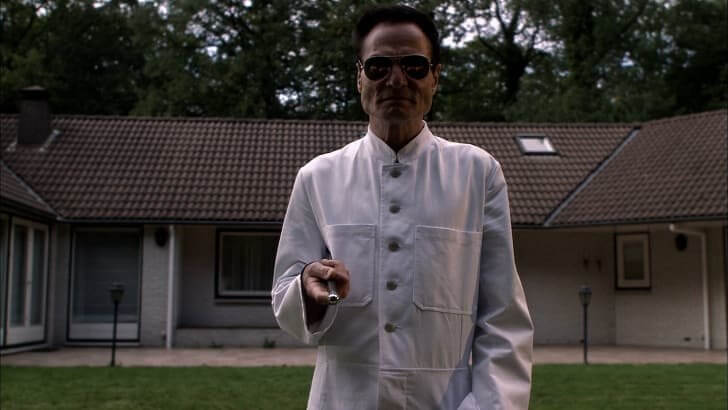This article was originally published on Kueez
Armageddon (1998)
Mr. Ebert was less than impressed when Bruce Willis, Ben Affleck, and their gang of rag-tag miners learned to become astronauts in a week and flew to space to save the earth from a meteor. “The movie is an assault on the eyes, the ears, the brain, common sense, and the human desire to be entertained. No matter what they’re charging to get in, it’s worth more to get out. ... Armageddon reportedly used the services of nine writers. Why did it need any?"
He continued: ‘It’s gonna blow!’ is used so many times, I wonder if every single writer used it once, and then sat back from his word processor with a contented smile on his face, another day’s work done.” Ouch!
Thor (2011)
Thor might not be the best of the Marvel movies, but Ebert didn't even think it was worthy of wielding Mjölnir. Awarded the film 1.5 stars, he wrote: “The story might perhaps be adequate for an animated film for children, with Thor, Odin, and the others played by piglets. In the arena of movies about comic book superheroes, it is a desolate vastation. Nothing exciting happens, nothing of interest is said, and the special effects evoke not a place or a time but simply special effects.”
Despite an ever weaker sequel, Chris Hemsworth went on to become one of the most popular Marvel superheroes, thanks to The Avengers saga and Taika Waititi's brilliant and hilarious Thor: Ragnarok (2017).
Ace Ventura: Pet Detective (1994)
Roger Ebert not only insulted Jim Carrey, but he also insulted Jerry Lewis and his fans with this humdinger of a one-star review. "Most of the people look as if they would rather be in other movies. The movie basically has one joke, which is Ace Ventura's weird nerdy strangeness. If you laugh at this joke, chances are you laugh at Jerry Lewis, too, and I can sympathize with you even if I can't understand you."
Then, he went on to say: "I found the movie a long, unfunny slog through an impenetrable plot. Kids might like it. Real little kids." Ouch!
The Usual Suspects (1995)
Getting meta, Mr. Ebert gave us an insight into his mind as he watched Bryan Singer's cult, neo-noir classic The Usual Suspects unfold before his eyes. "Once again, my comprehension began to slip, and finally I wrote down: 'To the degree that I do understand, I don't care.'" Okay, we concede that the plot is pretty convoluted, but it purposefully makes us feel what the detectives are feeling; bemusement until that famous killer reveal.
Roger continued: "It was, however, somewhat reassuring at the end of the movie to discover that I had, after all, understood everything I was intended to understand. It was just that there was less to understand than the movie at first suggests." We have to disagree!
The Village (2004)
Sometimes, Ebert got it completely wrong. Like when he reviewed M. Night Shyamalan's hugely underrated The Village: "When we do discover the secret, we want to rewind the film so we don’t know the secret anymore. And then keep on rewinding, and rewinding, until we’re back at the beginning, and can get up from our seats and walk backward out of the theater and go down the up escalator and watch the money spring from the cash register into our pockets.”
Roger obviously missed the fact that Shyamalan's film is a daring and accurate analogy on U.S. foreign policy in the wake of 9/11. Or maybe he just didn't care for it so much.
North (1994)
Some critics called comedy-drama North one of the worst films ever made, but Roger being Roger, he went one step further. "I hated this movie. Hated hated hated hated hated this movie. Hated it. Hated every simpering stupid vacant audience-insulting moment of it. Hated the sensibility that thought anyone would like it. Hated the implied insult to the audience by its belief that anyone would be entertained by it." However, for once, he'd get his punishment twelve years later!
When the film's writer, Alan Zweibel saw Roger Ebert in a restaurant, he followed him to the restroom and told him: "I just have to tell you, Roger, that that sweater you’re wearing? I hate, hate, hate, hate, hate that sweater.” Genius!
Hocus Pocus (1993)
Disney's popular Hocus Pocus didn't exactly bewitch the movie critic. He said: “Of the film’s many problems, the greatest may be that all three witches are thoroughly unpleasant. They don’t have personalities; they have behavior patterns and decibel levels. A good movie inspires the audience to subconsciously ask, ‘Give me more!’ The witches in this one inspired my silent cry, ‘Get me out of here!’” So he wasn't much of a fan, huh?
It sounds as if he despised the movie so much that––if it had been released exactly 301 years earlier––he'd have been leading the witch hunt to burn Bette Midler, Sarah Jessica Parker, and Kathy Najimy at the stake during the Salem Witch Trials.
Godzilla (1998)
After the success of Independence Day (1996), director Roland Emmerich needed another hit. And Ebert did his best to make sure Godzilla was never going to clean up at the box office: "Going to see Godzilla at the Palais of the Cannes Film Festival is like attending a satanic ritual in St. Peter's Basilica. It's a rebuke to the faith that the building represents. Cannes touchingly adheres to a belief that film can be intelligent, moving, and grand. Godzilla is a big, ugly, ungainly device to give teenagers the impression they are seeing a movie."
Huge, bloated, and overstuffed... and that's just the plot! If you want to see a good Godzilla movie––which doesn't feature French actor Jean Reno going undercover as an American with an impression of Elvis––check out Gareth Edwards' 2014 version, which Roger awarded 3.5 stars.
Fast Times At Ridgemont High (1982)
Another film Ebert was wholly wrong about was Amy Heckerling's debut, based on Cameron Crowe's screenplay. In addition to calling the film a "scuz-pit of a movie," the miserly critic penned: “The whole movie is a failure of taste, tone, and nerve—the waste of a good cast on erratic, offensive material that hasn't been thought through, or maybe even thought about.” Nevertheless, the coming-of-age comedy-drama went on to become a cult classic.
In 2005, Fast Times At Ridgemont High was selected for preservation in the United States National Film Registry by the Library of Congress as being "culturally, historically, or aesthetically significant." He'd have loathed that!
Stop! Or My Mom Will Shoot (1992)
In 1992, Ebert wrote: "Stop! Or My Mom Will Shoot! is one of those movies so dimwitted, so utterly lacking in even the smallest morsel of redeeming value, that you stare at the screen in stunned disbelief. It is moronic beyond comprehension, an exercise in desperation during which even Sylvester Stallone, a repository of self-confidence, seems to be disheartened." And Roger wasn't the only one that hated the movie, the film's director; Sly Stallone, did too!
Stallone said: "I made some truly awful movies ... Stop! Or My Mom Will Shoot was the worst. If you ever want someone to confess to murder, just make him or her sit through that film. They will confess to anything after 15 minutes."
Charlie’s Angels (2000)
Charlie's Angels was one of the biggest hit TV shows of the 1970s. Kate Jackson, Farrah Fawcett-Majors, and Jaclyn Smith invented and epitomized the glamorous female spy-thriller genre, but several reboots have failed to capture the magic of the original series. So when Cameron Diaz, Lucy Liu, and Drew Barrymore took on the mantle, Ebert scribed: “Charlie’s Angels is like the trailer for a video game movie, lacking only the video game, and the movie.”
Yes, this 2000 outing might not have been very artistic, but it was exciting and goofy fun. And we think it definitely deserves more than half of one star!
The Love Guru (2008)
After the success of the Austin Powers series, Mike Myers hoped to woo audiences with another classic comedic character. But Roger Ebert savaged The Love Guru: "This film could have been written on toilet walls by callow adolescents. Every reference to a human sex organ or process of defecation is not automatically funny simply because it is naughty, but Myers seems to labor under that delusion."
The film guru continued: "[Myers] acts as if he’s getting away with something, but in fact, all he’s getting away with is selling tickets to a dreary experience.”
The Dukes Of Hazzard (2005)
In a similar vein to Charlie's Angels and Starsky and Hutch, Johnny Knoxville and Seann William Scott teamed up to reboot Hazzard County's favorite moonshine-distilling yahoos in 2005. But Roger Ebert channeled the grumpy ghost of Boss Hogg by writing: "Here is a lame-brained, outdated wheeze about a couple of good ol' boys who roar around the back roads of the South in the General Lee, their beloved 1969 Dodge Charger."
This is one movie Roger was right about. Unfortunately, it was a pale imitation of the original series, and not even Jessica Simpson washing the General Lee in her cowboy boots and denim shorts could save it!
Spice World (1997)
When Geri, Victoria, Mel B, Mel C, and Emma aka Ginger, Posh, Scary, Sporty, and Baby Spice released their own movie, Roger Ebert was obviously far from being a fan. "Spice World is obviously intended as a ripoff of A Hard Day's Night, which gave The Beatles to the movies ... the huge difference, of course, is that the Beatles were talented." Tell us how you really feel, Roger!
And he didn't stop there! "The Spice Girls could be duplicated by any five women under the age of 30 standing in line at Dunkin' Donuts." The quintet went on to sell 100 million records, making them the bestselling girl group of all time. Take that, Mr. Ebert!
Mr. Magoo (1997)
In the late 1990s, Police Squad, Airplane, and The Naked Gun actor Leslie Nielsen took to the silver screen to play beloved, short-sighted cartoon character, Mr. Magoo. And the only good thing the critic could say was that he liked the car! In what may have been one of his first online reviews, he wrote, “Magoo drives a red Studebaker convertible in Mr. Magoo, a fact I report because I love Studebakers and this was the only thing I liked in the film.”
And then, Roger used a remarkable analogy: "Mr. Magoo is transcendently bad. It soars above ordinary badness as the eagle outreaches the fly.”
The Back-Up Plan (2010)
Back when Jennifer Lopez was still a Hollywood big-hitter, she made a rom-com that, according to Ebert, should never have seen the light of day. He proselytized: “Some movies are no better than second-rate sitcoms. Other movies are no better than third-rate sitcoms. The Back-up Plan doesn't deserve comparison with sitcoms. It plays like an unendurable TV commercial about beautiful people with great lifestyles and not a thought in their empty little heads.”
Roger gave the film just one star. But it's not as bad as it sounds, as remember––for some unknown reason––his rating system was out of four stars, not five.
Freddy Got Fingered (2001)
Now, some movies deserve to be fingered, and Tom Green's directorial debut Freddy Got Fingered is one of them. Roger Ebert aimed both fists at the comedy, hilariously noting: "This movie doesn't scrape the bottom of the barrel. This movie isn't the bottom of the barrel. This movie isn't below the bottom of the barrel. This movie doesn't deserve to be mentioned in the same sentence with barrels." That's harsh!
Completely vindicated, the film received a total of eight Golden Raspberry Award nominations, winning five of them. Sounds like Freddy got more than fingered!
Battlefield Earth (2000)
The first thing to know about Battlefield Earth is that its star and financier, John Travolta is a Scientologist retelling L. Ron Hubbard's world creation myth. The next thing you need to know is that many would agree that it is a truly awful movie. And when it came time to review the film, Mr. Ebert wrote gleefully that it was like: "taking a bus trip with someone who has needed a bath for a long time."
He also explained: "It's not merely bad; it's unpleasant in a hostile way ... I watched it in mounting gloom, realizing I was witnessing something historic, a film that for decades to come will be the punch line of jokes about bad movies." Battlefield Earth won eight Golden Raspberries, and––in 2010–– won Worst Picture of the Decade!
Christmas With The Kranks (2004)
Not even Home Improvement's Tim Allen and scream queen Jamie Lee Curtis could save Christmas With the Kranks from Roger's improvements. "It's a holiday movie of stunning awfulness that gets even worse when it turns gooey at the end. And what is it finally so happy about? Why, that the Kranks' neighbors succeed in enforcing their lockstep conformity upon them. They form a herd mentality, without the mentality. The movie is not funny, ever, in any way, beginning to end.”
For once, everyone seems to be in agreement with Ebert. Christmas With the Kranks is rated as Rotten Tomatoes' second-worst Christmas movie with a score of 5%. In case you're wondering, The Nutcracker in 3D (2012) is in first place with 0%.
The Flintstones In Viva Rock Vegas (2000)
In 1994, John Goodman and Rick Moranis played Fred Flintstone and Barney Rubble. But when Mark Addy and Stephen Baldwin took on the mantle in The Flintstones in Viva Rock Vegas (2000), they hit rock bottom! Citing his oft-used "you know, for kids" insult, Ebert wrote: "This is an ideal first movie for infants, who can enjoy the bright colors on the screen and wave their tiny hands to the music."
Needless to say, the film––which featured the alien The Great Gazoo and a parody of The Rolling Stone's Mick Jagger called Mick Jagged––bombed at the box office.
Good Luck Chuck (2007)
In Rob Reiner's brilliant rockumentary, This is Spinal Tap (1984), the heavy metal band's album "Shark Sandwich" famously receives a two-word review in a magazine. Those two words are "Sh*t Sandwich." Well, Roger Ebert went one better by giving rom-com Good Luck Chuck a one-word review. On his website, he wrote: "There is a word for this movie, and that word is: Ick."
Roger Ebert awarded the film one out of four stars. But he did add five more words: "potty-mouthed and brain-damaged," whilst his new partner––Gene Siskel's successor––Richard Roeper also rated the film poorly.
The Jazz Singer (1980)
Some films should never, ever be remade. Jaws is one. Psycho is another (here's looking at you, Gus Van Sant and Vince Vaughn). Yet another is The Jazz Singer. While his partner in crime, Gene Siskel, found a few things he liked about the film, Roger absolutely slated the remake of the world's first talkie, writing: "the remake has so many things wrong with it that a review threatens to become a list."
In addition to saying that Neil Diamond couldn't act, Ebert said the actor came across as "creepy, self-absorbed, grandiose, and offensively narcissistic." Don't hold back, now!
Deuce Bigalow: European Giolo (2005)
The sequel to Deuce Bigalow: Male Gigolo (1999) seemed to make the film reviewer want to throw up. He described it thus: "Duece Bigalow makes a living prostituting himself. How much he charges, I'm not sure, but the price is worth it if it keeps him off the streets and out of another movie. Deuce Bigalow is aggressively bad... as if it wants to cause suffering to the audience."
But he did find the sex comedy's one saving grace before mentioning his Pulitzer Prize! "The best thing about it is that it runs for only 75 minutes ... Speaking in my official capacity as a Pulitzer Prize winner, Mr. Schneider, your movie sucks."
V/H/S (2012)
Whether their films are good or bad, most industry folks tend to applaud the efforts of new filmmakers, but not our Roger! When horror website Bloody Disgusting branched out in movie-making, he asked: "What's the point? None of the segments is particularly compelling. Strung together, it's way too much of a muchness. These ambitious young artists might be better advised to make what I naively call a 'real movie.'"
V/H/S was so popular; it spawned three sequels, V/H/S/2, V/H/S: Viral, V/H/S/94, plus a spin-off, Siren.
The Ghost And The Darkness (1996)
In 1898, two man-eating lions nicknamed "The Ghost" and "The Darkness" hunted, killed, and ate dozens of unsuspecting railway workers in Kenya. Actors Val Kilmer and Michael Douglas thought they escaped with their lives, until Roger Ebert gave them a good mauling! "Val Kilmer and Michael Douglas never for a second look like anything other than thoroughly unhappy movie stars stuck in a humid climate and a doomed production."
His half-of-one-star review said the film made the Tarzan movies look subtle and realistic. And that: “Many scenes are so inept as to beggar description. Some of the lion attacks seem to have been staged by telling the actors to scream while a lion rug was waved in front of the camera."
Friday The 13th Part 2 (1981)
Instead of actually critiquing the newly-invented slasher movie genre, Roger just waxed lyrical about his own school days, when he seemingly hung out with 1950's rebel James Dean: “I remembered the movie fantasies when I was a kid. They involved teenagers who fell in love, made out with each other, customized their cars, listened to rock and roll, and were rebels without causes." After wistfully yearning for the good old days, his review eventually got round to mentioning the actual movie.
He said: "Neither the kids in those movies nor the kids watching them would have understood a worldview in which the primary function of teenagers is to be hacked to death." He has a point there!
Pink Flamingos (1972)
Back in 1997, Ebert wrote off one film as not worthy of even half a star! Trashing Divine's postmodern exploitation comedy, he ended up writing: "John Waters' Pink Flamingos has been restored for its 25th-anniversary revival, and with any luck at all, that means I won't have to see it again for another 25 years. If I haven't retired by then, I will." Fortunately for John Waters––Mr. Ebert passed away in 2013.
He even gave a postscript explaining his zero-star review: "Note: I am not giving a star rating to Pink Flamingos because stars simply seem not to apply. It should be considered not as a film but as a fact, or perhaps as an object."
Clifford (1994)
Not to be confused with Clifford the Big Red Dog (2021), Ebert said Charles Grodin and Martin Short's black comedy was the opposite of the dog's dinner. “It’s not bad in any usual way. It’s bad in a new way all its own. There is something extraterrestrial about it as if it’s based on the sense of humor of an alien race with a completely different relationship to the physical universe."
He continued: "The movie is so odd, it’s almost worth seeing just because we’ll never see anything like it again. I hope.” Fortunately, we never did see anything like it again... except in a dog bowl.
Dirty Love (2005)
Not even Jenny McCarthy's good looks could save rom-com Dirty Love from a dirty review. In fact, you could say Ebert gave the film some good rogering, writing: "I would like to say more, but—no, I wouldn't. I would not like to say more. I would like to say less. On the basis of Dirty Love, I am not certain that anyone involved has ever seen a movie or knows what one is."
Roger was right insomuch as Dirty Love went on to receive four Golden Raspberry Awards for Worst Picture, Worst Screenplay, Worst Director, and Worst Actress for McCarthy.
The Change-Up (2011)
Like a more adult version of Disney's Freaky Friday (1976), sex comedy The Change-Up sees Jason Bateman and Ryan Reynolds switch bodies. And you can bet they wanted to crawl out of their own skin and into someone else's when they read Ebert's gnarly review of their work! “The film seems to go out of its way to be vulgar and offensive... as if ‘adult’ audiences crave such an assault."
Roger continued making their skin crawl by adding: "Anyone who enjoys this film cannot fairly be considered an adult. Pity about the R rating. It will keep out those callow enough to enjoy it.”
Jason X (2001)
By the time Jason Voorhees and the Friday the 13th series reached its tenth outing, it was truly dead in the water. And Roger Ebert certainly didn't hold back, writing: "'This sucks on so many levels.' Dialogue from Jason X; rare for a movie to so frankly describe itself. Jason X sucks on the levels of storytelling, character development, suspense, special effects, originality, punctuation, neatness, and aptness of thought."
The plot sees Jason cryogenically frozen for 445 years. Then, when he awakens in 2455, he starts killing the students who found him. And when writers have to scrape the bottom of the barrel like that, you wonder how the film ever got made!
The Bucket List (2007)
As an old man himself, Ebert took exception to this movie: "The Bucket List is a movie about two old codgers who are nothing like people, both suffering from cancer that is nothing like cancer and setting off on adventures that are nothing like possible. I urgently advise hospitals: Do not make the DVD available to your patients; there may be an outbreak of bedpans thrown at TV screens."
But Roger Ebert had every right to question the characters having cancer, as he himself was diagnosed with thyroid cancer in 2002, ultimately having his lower jaw removed in 2006.
Mannequin (1987)
Mr. Ebert thought that the 1980's rom-com Mannequin was so bad, he said it actually made him want to die! In a scathing review, he quipped: “A lot of bad movies are fairly throbbing with life. Mannequin is dead. The wake lasts 1 1/2 hours, and then we can leave the theater. Halfway through, I was ready for someone to lead us in reciting the rosary.” Now that's a little harsh, no?
Much to Ebert's distress, in 1991, a sequel called Mannequin Two: On the Move was resurrected. It was cited as "one of the worst follow-ups ever made."
Sorority Boys (2002)
"One element of Sorority Boys is undeniably good, and that is the title. Pause by the poster on the way into the theater. That will be your high point"! He went on: "Because the intelligence level of the characters must be low, very low, very very low, for the masquerade to work, the movie contains no wit, only labored gags involving falsies, lipstick, unruly erections, and straight guys who don't realize they're trying to pick up a man. "
Ebert's review went on to diss not one but two movies in one fell swoop: "Sorority Boys will be the worst movie playing in any multiplex in America this weekend, and, yes, I realize Crossroads is still out there.”
New Year's Eve (2011)
Boasting an impressive ensemble cast, New Year's Eve was like a pale imitation of Short Cuts (1993)––Robert Altman's ode to Raymond Carver's short stories. And Ebert absolutely hated it! “New Year's Eve is a dreary plod through the sands of time until finally, the last grain has trickled through the hourglass of cinematic sludge. How is it possible to assemble more than two dozen stars in a movie and find nothing interesting for any of them to do?"
In his review, the Chicago Sun-Times writer saved his readers from a fate worse than death: "I'm not even going to begin to summarize the paltry series of subplots the all-star cast is trapped in. I like you too much.”
Saving Silverman (2001)
Jack Black can usually rescue any movie he appears in. But there's always an exception to the rule. Unfortunately, this movie was so bad that it made the usually erudite Roger Ebert make no sense at all. "Saving Silverman is so bad in so many different ways that perhaps you should see it, as an example of the lowest slopes of the bell-shaped curve." If anyone can explain that last part of the sentence, you win a prize!
Ebert even had a go at his arch-nemesis: "As for Neil Diamond, Saving Silverman is his first appearance in a fiction film since The Jazz Singer (1980), and one can only marvel that he waited 20 years to appear in a second film, and found one even worse than his first one."
The Hot Chick (2002)
In her 1847 novel, Jane Eyre, Charlotte Brontë broke the fourth wall with the famous line, "Reader, I married him." One hundred and fifty-five years later, Ebert channeled the eldest Brontë sister to urge his readers not to go and see this movie: "Through superhuman effort of the will, I did not walk out of The Hot Chick, but reader, I confess I could not sit through the credits."
He went on to describe the Rob Schneider and Anna Faris movie: "The MPAA rates this PG-13. It is too vulgar for anyone under 13 and too dumb for anyone over 13.”
Atlas Shrugged: Part I (2011)
Roger was hyped about Atlas Shrugged. That is, until he watched it! Somewhat baffled, he wrote: "I figured it might provide a parable of Ayn Rand’s philosophy that I could discuss ... And now I am faced with this movie, the most anticlimactic non-event since Geraldo Rivera broke into Al Capone’s vault. I suspect only someone very familiar with Rand’s 1957 novel could understand the film at all, and I doubt they will be happy with it.”
Roger's analogy refers to a live 1986 TV special, The Mystery of Al Capone's Vaults. Rivera broke into Capone’s vault expecting to find millions of dollars in lost loot or even dead bodies. Instead, when he finally opened the vault, it was empty.
200 Cigarettes (1999)
Another film that follows an ensemble cast––consisting of Ben Affleck, Casey Affleck, Dave Chappelle, Janeane Garofalo, Kate Hudson, Courtney Love, Martha Plimpton, Christina Ricci, and Paul Rudd––on New Year's Eve is 200 Cigarettes. Ebert was so uninspired; his review noted that "the witless screenplay provides its characters with aimless dialogue and meaningless confrontations," and his musings mostly noted how none of the cast could actually smoke a cigarette with any style or panache.
He ended his scathing half-star review: "Maybe another 200 cigarettes would have helped; coughing would be better than some of this dialogue."
The Human Centipede (2010)
If you haven't heard of this body horror movie, its unhinged plot sees a deranged scientist sew victims together––derrière to mouth. But Roger Ebert wasn't about to take any sh*t! “I am required to award stars to movies I review. This time, I refuse to do it. The star rating system is unsuited to this film. Is the movie good? Is it bad? Does it matter? It is what it is and occupies a world where the stars don't shine.”
Ebert hated this movie so much, even half a star would have been too much!

